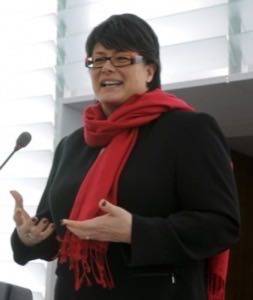A spokesperson for European Commission Vice President Joaquin Almunia confirmed to ReadWriteWeb this afternoon from Brussels that the Commission has yet to come to a decision over whether to issue a Statement of Objections to Google, specifically with respect to an official investigation into whether the company weights search results – especially searches for commercial products – against certain sites, including online retailers.

The confirmation comes after a Bloomberg News report this morning appeared to indicate the EC had yet to reach a decision about an investigation concerning whether Google makes arbitrary choices with regard to which sites receive higher-ordered results in Google News. As Comm. Almunia’s spokesperson tells RWW, his statement was actually in response to something else entirely: specifically, a question submitted by another commissioner into whether, over a two-year period, the Commission has obtained evidence showing Google actively demotes specific retailers.
Comm. Sabine Verhayen, who caucuses with the European People’s Party (PPE) representing the Aachen province of Germany, submitted a question to Comm. Almunia, in a format resembling a written version of Question Time in the British and Canadian parliaments. Almunia’s answer, in its entirety, reads as follows:
The Commission agrees with the Honourable Member on the necessity to intervene in a timely manner in fast moving sectors such as the ones in which Google is active. The Commission is dealing with this case as a matter of priority. However a thorough assessment of the several categories of allegations of infringements of competition rules brought forward by several complainants is necessary.
The Commission is to date not in a position to say whether its investigation will lead to issuing a Statement of Objections.
In her written question, Verhayen referred directly to “Panda,” the code-name for the adjustments to Google’s search algorithms that the company rolled out through the second half of 2011. These rollouts were intended for many reasons, most ostensibly the filtering out of content that some blogs – which Google representatives have called “scrapers” – copy, often in their entirety, from their original sources without permission. Though the Commission’s investigation began well before the Panda rollout, Verhayen alleged that Google may be demoting certain sites, implying these actions may be intentional.
“The urgent need for action has become even more acute since Google’s introduction of its ‘Panda’ algorithmic update earlier this year,” Verhayen wrote Almunia. “With Panda, Google is now targeting many established vertical search brands, as well as emerging ones. Panda’s algorithmic demotions are more subtle than their predecessors. Although affected sites do not completely disappear from Google’s search results, they are systematically demoted to a point beyond the reach of most users, and so receive little or no traffic from this vital channel. Given the fast-moving environment of the Internet and the fact that the Commission’s investigation into Google has been in progress for almost two years now, can the Commission indicate what it regards as timely action in this case? Can the Commission indicate when it might reach its preliminary conclusions and issue a Statement of Objections?”

Almunia left a conclusive response to Verhayen’s final question up in the air.
Although the Panda upgrades resulted in very noticeably reduced instances of “scrapers” appearing in Google search results, one of the more interesting side-effects for a multitude of legitimate, “non-scraper” Web sites was a sudden drop in overall traffic across the board, which analytics could directly attribute to reduced referrals from Google, especially from Google News. Theoretically, one of the unintended – and perhaps unavoidable – side-effects of Panda’s more vigorous filtering may have been to reduce the level of assessed popularity of a multitude of topics, especially those pertaining to technology, from Google search results. That popularity is believed to be a direct factor in determining placement for headlines in Google News. While the real reason for the reduction in instances of certain articles may actually be due to vigorous filtering, the effect from Google News’ perspective could appear the same as if the whole world stopped being interested in such topics by about 40%.
Thus there may be a scientific, rather than a conspiratorial, reason behind certain perceived demotions. Ascertaining whether this is true could require a lot more time.
A Statement of Objections is the first step taken by the European Commission in advancing an investigation to a formal proceeding, allowing the recipient to present a formal defense. Such steps were taken after the EC’s previous investigations of Intel and Microsoft found evidence of possible wrongdoing that was brought to the public attention.





















